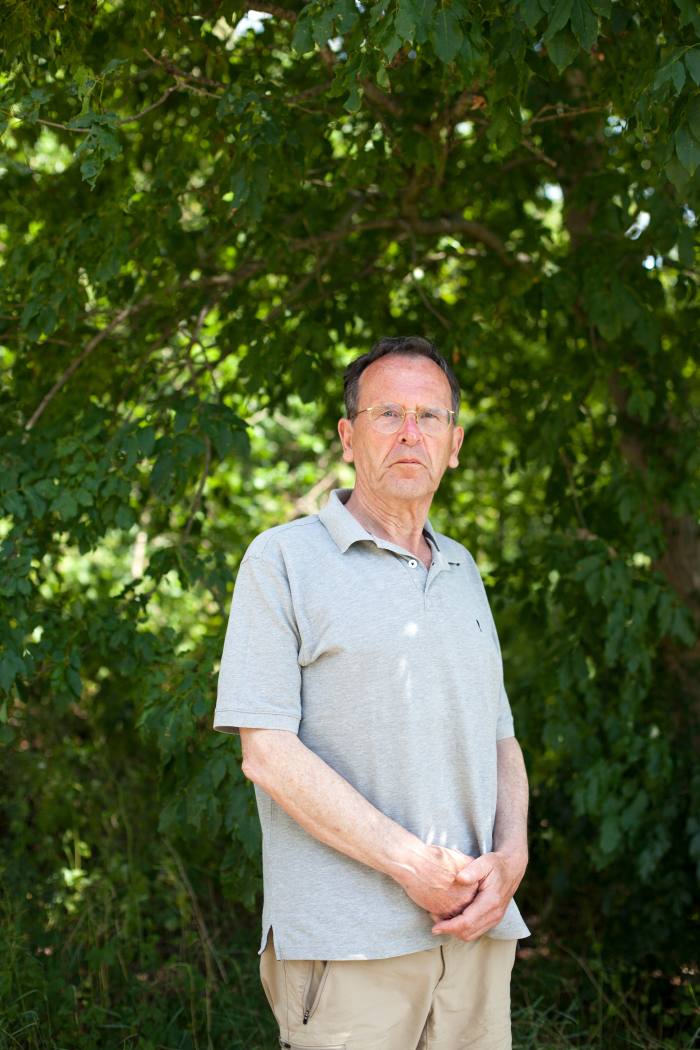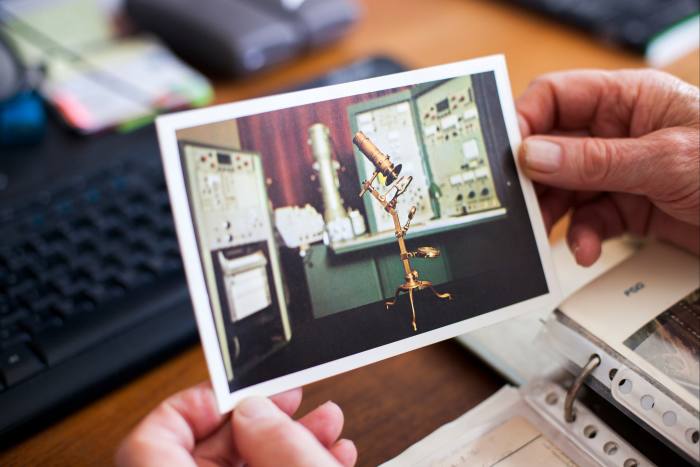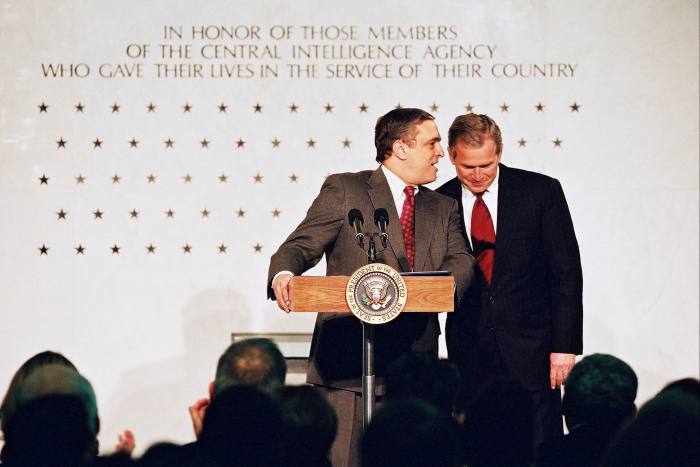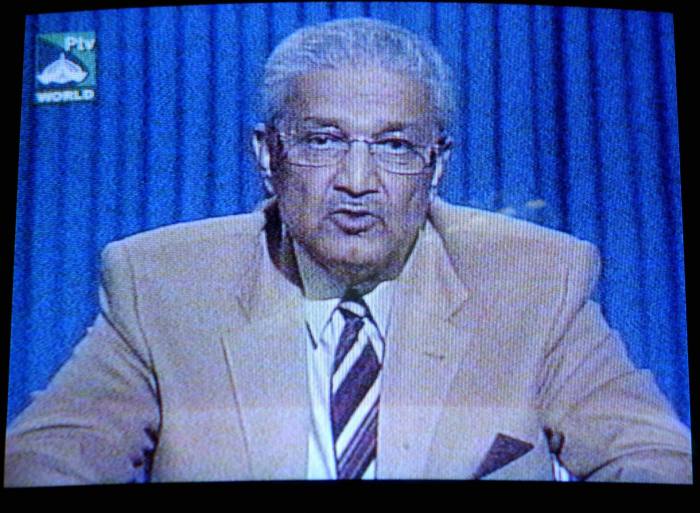Nuclear secrets: the Dutch whistleblower who tried to stop Pakistan’s bomb
Frits Veerman first warned the authorities in 1973 about the suspicious activities of his colleague AQ Khan. Why was he ignored?
July 24 2020
In the early 1970s, the Dutch technician Frits Veerman shared a large desk in a lab in Amsterdam with a charming Pakistani scientist named Abdul. One day, Veerman mentioned that he’d like to visit Pakistan. He asked if he could stay a few nights with his colleague’s family. Abdul — full name Abdul Qadeer Khan — replied that Pakistan’s government would pay for his entire trip. That’s when Veerman began to suspect that Khan was stealing Dutch nuclear secrets.
The evidence was everywhere. Veerman’s job was photography, and he’d once spent days with Khan snapping ultracentrifuges, the devices used to enrich uranium. He saw drawings of centrifuges and classified reports lying around Khan’s living room. And he says Khan once confided that his large gold ring was “my pocket money for if I ever need to leave somewhere quickly”.
How did Veerman feel when he realised the truth? “Frightened,” he replies. Now in his seventies, with short dark hair and rimless glasses, he is eating pasta on a restaurant terrace in Antwerp, Belgium, where we have arranged to meet. If you had to guess his profession, you’d say: retired technician. He’s a provincial Dutchman whose life was derailed by nuclear espionage.
Veerman first tried to report Khan to the Dutch authorities in 1973. He didn’t make it past a secretary. Had he been heard, then or later, the world might have been spared a nightmare. The Dutch allowed Khan to leave their country in 1975 and to keep visiting European suppliers. The US Central Intelligence Agency didn’t stop him either. Khan ended up building Pakistan’s nuclear bomb and selling the technology to Iran, North Korea and Libya.
Frits Veerman at his home in Huizen last month. He tried to blow the whistle on Khan in 1973 and later lost his job at FDO. “A great injustice was done to me, but I don’t think about it much.” © Xiaoxiao Xu
This January, the Bulletin of Atomic Scientists
moved its Doomsday Clock to 100 seconds to midnight, the latest it has stood since its creation in 1947. The clock symbolises the risk of human extinction. The Bulletin cited threats including “a renewed nuclear arms race . . . the proliferation of nuclear weapons and . . . lowered barriers to nuclear war”, potentially involving Khan’s clients North Korea and Iran.
After Veerman blew the whistle, he lost his job. A report this month by the Huis voor Klokkenluiders, the new Dutch Whistleblowers Authority, finally absolves him. It also helps explain why he and not Khan was punished.
Khan is now 84, and living under unofficial house arrest in Pakistan, where he has long had an up-and-down relationship with the authorities. He is closely escorted by security officials during his restricted movements, while any visitors to his home are screened in advance.
He was born in Bhopal, British India, in 1936, the son of a Muslim headmaster. He has said that as a child, during India’s partition in 1947, he saw trains carrying corpses of Muslims killed in sectarian fighting, write Douglas Frantz and Catherine Collins in
The Nuclear Jihadist. Khan left India for Pakistan in 1952, after finishing high school. On the train journey, an Indian policeman stole his gold pen. “Hindus are crooks and mischievous,” the young Khan told a friend. “They are dreaming of destroying Pakistan to create a united India.”
In 1961, he went to
study in Berlin, and in 1963 switched to the Dutch technical university, Delft, to study metallurgy. Looking back, he said: “Whatever I learnt, and whatever I know, I owe a great deal to Delft.” After Delft, he did his doctorate in Louvain, Belgium. In 1971, Pakistan lost a war with India, and the new state of Bangladesh was carved out of Pakistani territory. Khan wept, write Frantz and Collins. A year later he joined FDO, the in-house lab of the VMF industrial company, as a metallurgical scientist.
FDO was
designing ultracentrifuges to enrich uranium. The Dutch didn’t have atom bombs, and the enrichment was intended for peaceful nuclear energy. But if the uranium was enriched further, it could be used to make bombs.
FDO had specified that Khan wouldn’t work on ultracentrifuges and noted that his wife’s family was Dutch. The Dutch intelligence service, then called the Binnenlandse Veiligheidsdienst (BVD), cleared him for secret work. And so, in 1972, Khan and Veerman — by then a technical photographer — became office mates. FDO was based in an old storehouse of the Dutch East India Company. Veerman had recently emerged from four years’ working alone in its cellar, perfecting details of the ultracentrifuge, which consisted of six cylinders on top of each other. It took art to keep them spinning, he recounts lovingly.
Veerman was born in 1944 in Huizen, a village where families had known each other for centuries. He still lives there: he can see his childhood home from his garden. His mother, a German, moved to the Netherlands before the war. Hitler’s occupation made her ashamed of her nationality. Each May 5, Dutch Liberation Day, “wasn’t a happy moment in the Veerman family”, he recalls. His paternal grandmother called him “a rotten Muff”, a pejorative for German.
Veerman holding a photograph from his time at the Dutch centrifuge designer FDO. It shows a replica of the Huygens microscope and a grid electron microscope in the background
Joris van Wijk, a TV producer who is planning a series around Veerman, says: “The Netherlands after the war was an unfriendly place for kids with a German mother. Frits will have had a hard time. It must have impacted the development of his social skills. He ended up living with his parents into his thirties.”
On visits to his mother’s family, Veerman would hear about relatives stuck in East Germany and meet others who seemed to have dubious wartime pasts. Earlier than most Dutch people, he learnt that terrible things happened in the world. This made him very cautious when he began handling nuclear secrets.
He had always had a gift for science. As a working-class boy, he attended technical schools. FDO was his dream job, the university he’d never had, “a playground for hobbyists of a high technical level”, he says. He built his own telescope at work. He loved learning from graduate colleagues. But they expected him to fetch coffee.
I should have gone there and rung at the door and told the directorate, and it would all have ended differently. But I wasn’t that mouthy then
Frits Veerman
Khan was different. Abdul, as Veerman still calls him, was friendly, handsome, smiled easily and spoke good Dutch. A Pakistani in the 1970s’ Netherlands was an exotic creature. Veerman brought Khan cheese from Huizen. On quiet afternoons they played tennis at the FDO’s courts by the river. They visited each other’s homes: Khan lived in a brick terraced house, the epitome of Dutchness, near Schiphol airport.
FDO made ultracentrifuges for Urenco, a company with a plant in Almelo, a small town in the eastern Netherlands whose dullness was famously encapsulated by the
comedian Herman Finkers: “A traffic light turns red, another green. In Almelo, there’s always something to do.” Khan found something to do there.
When Veerman’s suspicions about Khan crystallised, he initially didn’t know what to do. Khan was his senior. Veerman’s boss had known Khan since Delft. Eventually, Veerman went to a phone booth on Amsterdam’s Czaar Peterstraat and rang the director of Ultra-Centrifuge Nederland, which oversaw Dutch ultracentrifuges. The man’s secretary answered. She wouldn’t put Veerman through to the director, so he told her his suspicions. She said she’d pass it on. Later, having heard nothing more, he called again, fruitlessly.
Looking back, he muses, “I should have gone there and rung at the door and told the directorate, and it would all have ended differently. But I wasn’t that mouthy then.” He says he mentioned his suspicions to senior people at FDO, but they didn’t seem interested.
Meanwhile, Khan had begun doing work at Urenco, roaming the plant undisturbed despite lacking the right security clearance. Nobody seemed to mind. It was the cold war and the Dutch were looking out for snooping Soviets, not Pakistanis.
Yet the Indian subcontinent was hotting up. In May 1974, India tested its first nuclear weapon. Khan wrote to Pakistani officials, offering to help build the “Islamic bomb”. In September, the prime minister, Zulfikar Ali Bhutto, decided to gamble on him. Pakistan’s embassy in The Hague contacted Khan. Just then, Khan had another breakthrough, write Frantz and Collins: his employers asked him to translate German documents describing a new centrifuge into Dutch. He did the work at the “brain box” in Almelo, where the plant’s most sensitive information was kept. He was assembling quite a package.
The Americans asked us to inform them fully but not take any action. We found it a bit strange… but we didn’t feel safeguarding the world against nuclear proliferation was a Dutch responsibility
Former Dutch PM, Ruud Lubbers
But others now suspected him. A Pakistani diplomat had begun ordering parts from suppliers of Urenco and it was noticed that some orders had the same specifications as those used by Urenco. In October 1975, at a nuclear trade show in Basel, Dutch BVD agents trailed Khan as he questioned vendors about nuclear weapons.
This is the moment when Khan could have been stopped. The BVD made plans to arrest him at FDO when he arrived for work one morning, write Frantz and Collins. The Dutch foreign ministry approved. But Ruud Lubbers, then minister of economics, was opposed: a scandal could damage the high-tech sector.
The Dutch briefed the CIA on Khan,
Lubbers told Japanese TV in 2005. The Americans opposed the nuclear ambitions of their Pakistani allies. Nonetheless, the CIA stopped the BVD from arresting Khan. The Americans wanted to watch him, so as to track Pakistan’s nuclear procurement and Europe’s secretive nuclear suppliers.
Dutch politician Ruud Lubbers in 1982, the year he became prime minister. By this point he wanted to arrest Khan but was told to ‘leave it to the intelligence services’
The CIA’s failure to stop him in 1975 “was the first monumental error”,
Robert Einhorn, who worked on nonproliferation in the Clinton and Obama administrations, told Frantz and Collins.
The Americans asked the Dutch “to inform them fully but not take any action”, Lubbers recalled, laughing. He said he “found it a bit strange”, but also thought, “‘OK, it’s American business.’ We didn’t feel . . . safeguarding the world against nuclear proliferation as a Dutch responsibility.” The business of the Netherlands was business. The CIA would watch Khan for decades.
FDO didn’t tell Khan he was under suspicion. It gave him a new job, calling it a promotion, and said he could stop visiting Almelo. He may have realised the game was up. On December 15 1975 he flew to Pakistan on leave, taking his wife, daughters and blueprints of centrifuges. Soon afterwards, from Pakistan, he resigned from FDO.
On January 15 1976, Khan sent Veerman a handwritten letter in Dutch from Karachi that began:
Dear Frits,
It’s now almost a month that we’re out of the Netherlands and gradually I’m starting to miss the tasty chicken. Every afternoon I think: let’s ask Frits if he feels like eating chicken!
The letter then asked him to help Khan’s wife Henny (presumably back in the Netherlands to pack up the family’s possessions) empty his locker at FDO into a cardboard box one Saturday morning. Veerman didn’t. He knew the locker was full of drawings and parts of ultracentrifuges. Khan’s letter also urged him to request a Pakistani visa. It seemed Khan needed his help in completing Pakistan’s Project 706: getting the bomb. Van Wijk, the TV producer, says: “I think Khan recognised Frits’s brilliance.”
In September 1976, FDO held a meeting about Khan. Veerman told his colleagues that he thought Khan was a spy. FDO doesn’t seem to have launched an investigation or taken measures, says the Dutch Whistleblowers Authority.
Later, Veerman detailed Khan’s actions to BVD agents. But his speaking out was unpopular. There had been rejoicing within FDO when an executive returned from a visit to ex-employee Khan in Pakistan with orders of work. Pakistani technicians began visiting FDO for what Veerman calls “a course in ‘how to build an ultracentrifuge’”.
Whistleblowers are commonly punished. The Dutch authority’s report is cautious, given the time that has elapsed, but says it is “plausible” that this is what happened to Veerman. Soon after he spoke out, FDO demoted him to photocopying work. When he wrote to Khan, complaining about his treatment and sending cheese, Khan commiserated. In 1977, Khan wrote again:
Dear Frits,
Strictly confidential I am requesting your help. I urgently need the following information for our research programme:
1. Etches of axles
(a)Potential how many volts?
2. Lower absorber
Can you arrange for an entire CNOR lower absorber? Will you please give my affectionate greetings to Frencken and try to get [one] for me. [Etcetera]
Khan added that there was “lots of photo-work” for Veerman in Pakistan, promising: “You’ll surely have a lot of fun and won’t regret it . . . When you write me, please do not write your own address on the envelope please. Instead of my name just put ‘Mrs Khan’ or even just Henny and then the home address.”
Veerman didn’t reply to the letter. He showed it to his bosses, who told him to destroy it. He kept it in his safe instead. In 1978, the day Veerman returned from his honeymoon, a postman handed him a telex from FDO informing him of his redundancy. The stated reason was that photography work had dried up.
A Ghauri missile during its test launch in Pakistan, April 1998. After setting up the country’s nuclear programme, Khan became rich selling starter kits to many countries including Syria and Saudi Arabia
Why was Veerman sacked? A former Dutch security investigator, who handled the Khan case from 1979, told the whistleblowers authority that Veerman was “sacrificed” because he wouldn’t stop talking. FDO’s security had been lax, the Netherlands and its high-tech sector were embarrassed, those involved didn’t want the story to reach the media or other countries, and the junior employee had to shut up. This is what Veerman had always suspected.
No other Dutch tech company would hire him. Is Veerman bitter? The question seems to surprise him. He doesn’t have a large emotional vocabulary. “I don’t cry about it all day. A great injustice was done to me, but I don’t think about it much. When something like that happens, you have to make an assessment — maybe I am too sober — and go on.”
Now, with the whistleblowers’ report, Veerman plans to seek compensation from the Dutch state and the present incarnation of FDO’s former holding company, VMF-Stork (FDO closed in 1992). The current Stork, which now consists of a very different set of operating companies, says it “has fully co-operated with the investigation [by the Dutch Whistleblowers Authority], even though this question is from a very long time ago . . . The current Stork cannot be regarded as Mr Veerman’s employer, as the Authority’s report confirms.”
Veerman continued to receive lucrative offers. “I could have got 500,000 guilders from Abdul if I’d wanted,” he muses. He says diplomats from Iran, Iraq and other Middle Eastern countries called him at home, offering him visitors’ visas. In the end, he requested a secret phone number.
His life took a different path. When he went to apply for unemployment benefit, he found his local social security agency a mess. He asked to see the manager, who ended up offering him a job paying less than half what he’d earned at FDO. Yet, he says: “It was the biggest luck of my life that I could land there.” He stayed in the Dutch social security administration until retirement — not “the glittering career I had dreamt of”, he says. But he enjoyed the work.
In his first weeks there, BVD agents kept coming to see him. “What’s this about?” his boss asked. “Nuclear bombs,” said Veerman. Agents also visited his house, once interrogating him in his bedroom while his family was celebrating his birthday. The BVD suggested he could be prosecuted as Khan’s accomplice. (Veerman’s request to see his BVD file has been denied.)
CIA director George Tenet with US president George W Bush in 2001. The Americans stopped the Dutch from arresting Khan in the mid-1970s so they could watch him - and Europe’s secretive nuclear suppliers © Getty
Meanwhile, Khan regularly flew into Brussels, then drove to nearby countries visiting suppliers and scientists. The BVD took no action, even when Dutch businessman Nico Zondag reported in 1977 that Pakistan was seeking products to build a nuclear bomb. A Dutch foreign-ministry official wrote in a memo in 1984 that exports to Pakistan continued, “including essential bomb components that for whatever reason couldn’t be blocked”.
Khan said in 1987 that Europeans were keen sellers: “People chased us with figures and details of equipment they had sold to Almelo and Capenhurst [the British site of another Urenco plant]. They literally begged us to buy their equipment.” There were few restrictions on such exports in those days. If an item seemed particularly problematic, the trick was to conceal its destination by routing it through an inoffensive third country.
A small country with an impenetrable language can generally keep national embarrassments secret. The Dutch government commissioned a report on Khan only in 1979, after the German TV channel ZDF — using sources other than Veerman —
revealed Khan’s espionage to the world. Nobody then thought Pakistan was close to getting the bomb and the CIA believed it had the matter under control, but the Netherlands — a vocal supporter of the Nuclear Nonproliferation Treaty of 1968 — was humiliated in front of its allies.
A great injustice was done to me, but I don’t think about it much. When something like that happens, you have to make an assessment — maybe I am too sober — and go on
Frits Veerman
In 1983, Veerman was summoned to a meeting at the Bijlmer prison. There, he later told the whistleblowers authority, government officials ordered him to keep quiet about Khan “because the Netherlands’ international relations and reputation were at risk, and the interests of Dutch industry”. When he said he’d keep speaking out, an executive from FDO snapped that speaking out had got him fired — thereby blowing the company’s cover story.
Veerman went straight from the meeting to a Dutch newspaper, but afterwards retreated into his social security job and was hardly heard of again in public for decades until now. He was also put on an international watchlist and for many years was questioned by the authorities when he travelled abroad. On one family holiday in Italy, his car was stopped by armed police.
In 1983 the Netherlands sentenced Khan in absentia to four years in jail for seeking secret information. The main evidence was his letters to Veerman. Khan was offended by the verdict and his biographer Zahid Malik would record his complaint that two of the judges were Jews. Later, his sentence was overturned because he hadn’t been served the summons. The Dutch then abandoned prosecution of the most consequential crime committed on their territory since the second world war. The ministry of justice later admitted that Khan’s
legal file had gone missing.
Khan on Pakistani state TV in February 2004, when he confessed to transferring technology to Iran, Libya and North Korea. He later withdrew the confession
Lubbers, who became prime minister in 1982, wanted Khan arrested but was told to “leave it to the [intelligence] services”. Looking back, he told the Argos radio show: “The last word is Washington. There is no doubt they knew everything, heard everything. There is an open line between The Hague and Washington . . . It was very dumb.” Khan was allowed to return to the Netherlands repeatedly, including for a visit to his dying father-in-law in 1992.
The CIA’s former director of central intelligence, George Tenet, once boasted: “We were inside [Khan’s] residence, inside his facilities, inside his rooms.” Yet the Americans missed a lot, partly because they expected Pakistan to pursue a bomb made with plutonium rather than uranium. They were also late to realise that Khan had
opened a nuclear supermarket, offering starter kits to many countries including Syria and Saudi Arabia. Decades after leaving the Netherlands, he was still selling Dutch knowledge. He grew rich. In 1998, he also became celebrated as “Mohsin e-Pakistan” (Saviour of Pakistan), after the country detonated six nuclear bombs at a test site.
Proof of his sales emerged in 2003, when the US Navy intercepted a ship carrying nuclear technology from one of his factories to Libya. Later, the Libyans handed the Americans two plastic bags (bearing the names of an Islamabad tailor and a dry cleaner) that contained bomb designs. In 2004, Khan confessed on live television to transferring the technology to Libya, Iran and North Korea. By then, the US couldn’t demand his punishment, as Pakistan was an ally in the “war on terror”.
Pro-Khan protesters in Karachi, the day after his TV broadcast. Veerman bears no grudge against his former colleague: ‘He became a spy, in my view… [but] he has performed great services for his country’
Meanwhile, the Dutch government admitted in 2004 that Iranian centrifuges had been seen that used “Urenco technology from the 1970s”. Pakistan’s centrifuges were similar. The Dutch foreign ministry told the FT: “The Netherlands attaches great importance to the Non-proliferation Treaty and the prevention of proliferation. The Netherlands did not actively contribute to unwanted proliferation of knowledge.”
Khan later
withdrew his confession. Some years ago, an American documentary-maker arranged for Veerman to phone his old friend. Khan, who resents being painted as a common spy, told him, “Frits, you are the biggest liar around.” Khan is now out of favour with Pakistan’s government. Security forces personnel installed in the house next door block him from meeting his relatives, friends and lawyers, he complained in an
appeal to Pakistan’s Supreme Court last month.
How does Veerman view him now? Veerman reflects, then says: “He has performed great services for his country. He became a spy, in my view. That doesn’t mean I’m hostile towards him. When we spent time together, I thought he was a nice man.”
Veerman is harsher about his own country: “If Iran ever manages to destroy Israel, they could put on the weapons, ‘Made in Holland.’”
found this recent article in the ft very interesting












